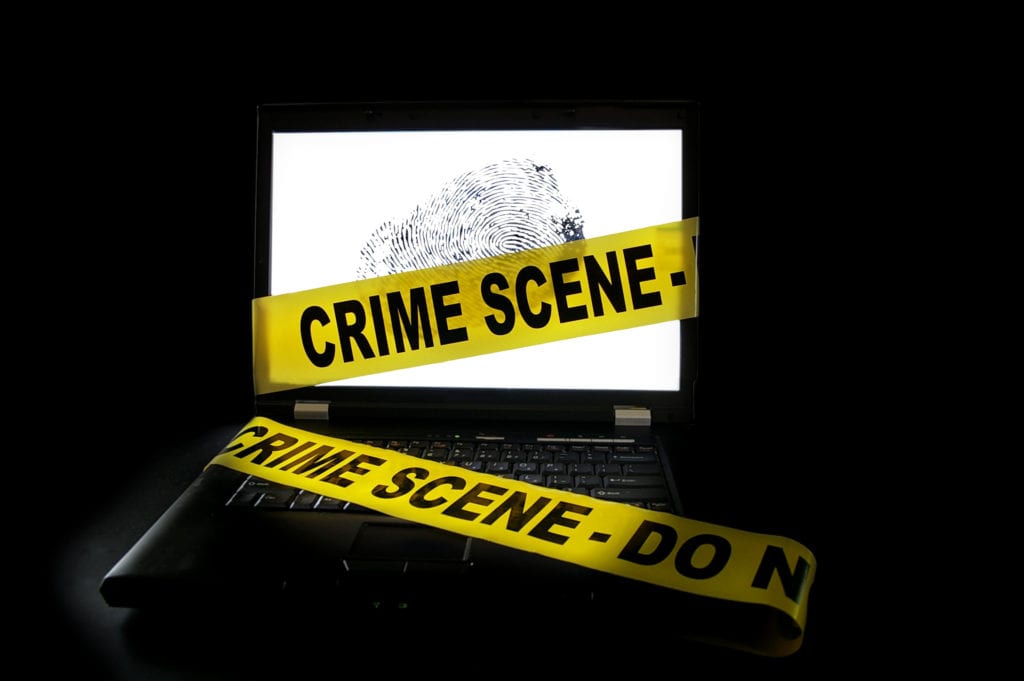
Cyber crime is solved by very specific investigators – computer forensics investigators.
Thanks for joining The Kronzek Firm again as we unpack the fascinating subject of cyber crime and how it’s solved. In our previous article we looked at exactly what a computer forensic investigator does, and what types of crimes they can assist in investigating. Moving forward, we are going to take a look at how cyber crimes are solved.
Investigating digital evidence is a unique experience. An investigator can discover evidence, pursue leads, and even track a criminal, all without leaving their desk. Which makes the computer forensic investigator a very specific type of detective. And while it may sound less exciting than the more traditional methods of detecting, the impact it has on people’s daily lives is far greater!
According to forensicoutreach.com “Physical crimes are still a horrific problem, but the numbers pale when comparing victims. The global homicide rate for murders (not including wars, suicides and the wounded) as calculated by the Geneva Declaration on Armed Violence and Development is reported to be 441,750 shooting victims annually, about 1/3 of the daily count of cybercrime victims.”
So how does a computer forensics investigator go about solving crimes? The answer to that is somewhat complex, but here is a breakdown of the average tasks a cyber detective would have to perform as part of their job:
- Gather, analyze and preserve information on computer systems
- Retrieving and/or recreating deleted files, emails and documents
- Tracking downloads to and from their sources
- Finding the origins of emails and other shared digital information
- Digging up buried financial records
- Cracking passwords and accessing encrypted files
- Uncovering data that is disguised to look like something else
- Linking user accounts to specific individuals
- Analyzing digital information to determine criminal activity.
If there is anything that should be taken away from this, it’s that while the things you do in your own home, at your computer, may feel private, they’re just not! Just because you deleted something, doesn’t mean that it is gone and cannot be recovered. Just because you sent something anonymously, doesn’t mean it can’t be traced back to you. Nothing is ever so well hidden, disguised, or erased, that it can’t be found by a persistent investigator.
Cyber crimes sometimes feel safer to the perpetrators because, they happen quietly and without obvious victims unlike armed robbery, arson, murder or assault, No one gets rushed to the hospital with a bullet wound. No one usually runs screaming, or ends up hiding in fear. Because there is no violence, and the perpetrator is usually alone at the time, the crime can feel less dangerous. This is a very misleading feeling, because many law enforcement agencies have well trained computer forensic investigators on their teams. And they will stop at nothing to catch their prey.
We hope this information has been useful to you. If you or a loved one has been accused of using a computer to commit a crime, or some form of cyber crime in Michigan, contact The Kronzek Firm immediately at 866 766 5245. Our skilled computer crimes defense attorneys have decades of experience defending the people of MIchigan against allegations of criminal cyber activity. We make use of the best forensic investigators and IT experts in constructing our defenses. We can help you too.





